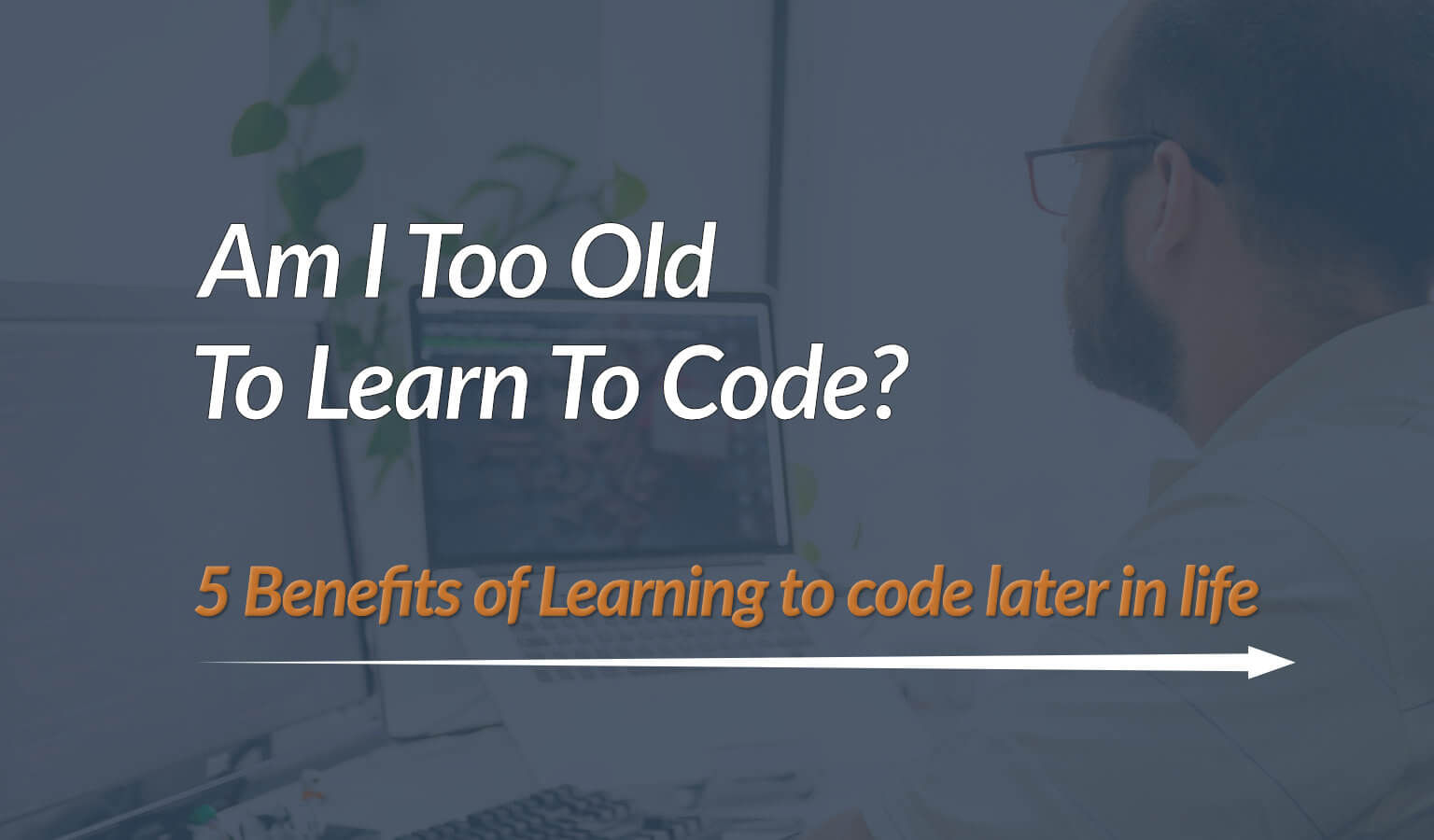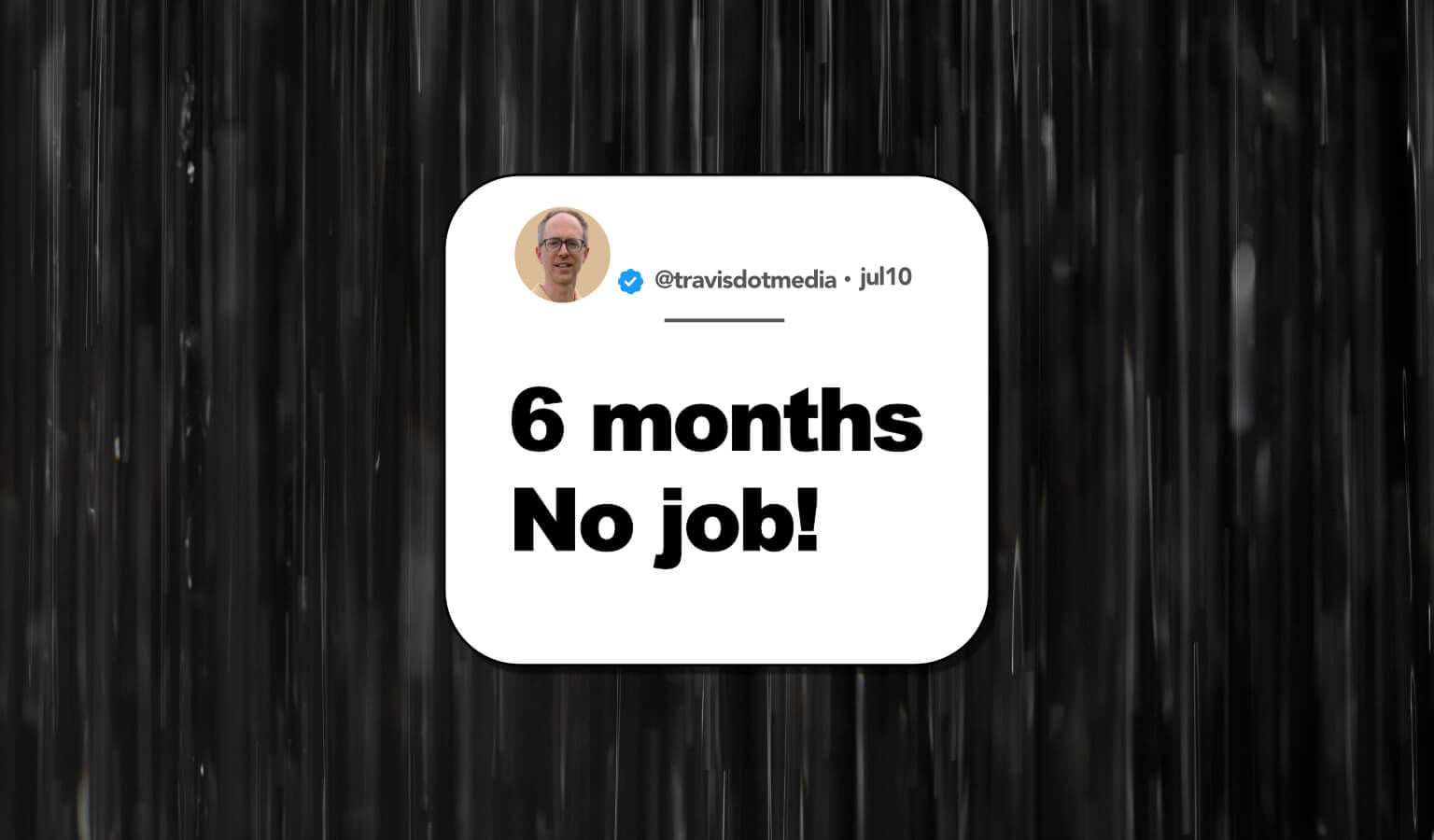Are you learning to code, or considering learning to code, but feel that you may be too old? You're not! Learning to Code later in life actually has it's benefits.

I felt this way in 2016 when I decided I would learn to code. I was 35 and married with 4 children. Other than a WordPress blog that I maintained, I had no experience with coding…at all! And my Twitter feeds were full of early 20-somethings learning web development and discussing topics that I had absolutely no knowledge of.
But two years later, here I am and coding has become an integral part of my life. I was actually able to leave my 9-5 and pursue freelance web development full time. You can read all about my journey here if that interests you.
But all this is to say, that not only are you NOT too old to learn to code, but there are some valuable benefits to doing so at this stage of your life.
Your cup is half full.
In fact, here are 5 immediate benefits to learning to code later in life:
5 Benefits of Learning To Code Later In Life
1. Economics
Time is one thing in life that becomes more and more scarce as you get older. You can't get back lost time. If you spent your 20's working at Wal-Mart for $10/hr instead of moving up the pay ladder, then you have wasted time in increasing your salary and long-term savings.
Coding is one field that pays well. By learning to code, you can increase your $10/hour salary quite significantly in a very short period of time.
This is a great opportunity to obtain a drastic increase in your pay, make up for lost time, and increase your overall quality of life.
2. Utilizing Prior Experience
This one is obvious: You are not coming to a new field as an overall complete newbie, but as a complete newbie with lots of real world experience.
Your 10 years at Wal-Mart taught you customer service, time management, organizational skills, and more.
Whatever your 20's were spent doing, you gained lots of experience that the youngster doesn't have.
Remember, you are already ahead in many aspects….you just need to learn to code.
3. Staying Relevant
Another wonderful thing about learning to code later in life, is that you are forced to stay relevant in the world of tech. This prevents you from become that "older guy" who begrudgingly still uses a flip phone and blames everything on "kids these days."
As you get into coding, you will inevitably become enamored with all the wonderful things happening in the vast world of technology today.
This will force you to stay relevant in life, a topic I plan to revisit in the future.
4. Mental Health
Solving coding challenges, building apps, debugging, etc. forces you to put your brain to work.
Studies have shown that mentally challenging activities like computer programming help to form new neural connections while strengthening exists ones.
There have been links to other potential benefits such as improved memory, delayed onset of dementia/Alzheimer's, increased attention to detail, increased productivity, etc.
As we get older, our brains tend to slow down. By learning to code later in life, you are indirectly committing to keeping your brain sharp and your mental health optimized.
5. Many Options
The field of tech and programming is so, so vast and is growing and changing so rapidly.
This allows you to pursue MANY avenues and specialities. Do you want to build websites? Software applications? Handle large amounts of data? Artificial Intelligence, Machine Learning? Healthcare technology? Geoscience? ….and on and on.
This not only gives you lots of options, but also provides you the opportunity to take your past specialty and experience and pursue programming in that particular field and niche.
Now, a few words of advice…
Hopefully you see now that there are wonderful benefits to learning to code, and you should not let an age barrier stop you in any way from doing so.
However, if you choose this path, you will face a number of potential obstacles, the majority of which are in only in your head.
So if you are learning to code later in life or considering it, let me give you a few pointers:
- Don't be discouraged by the young eggheads whose sole mission is to make you feel stupid for asking normal questions. Move on and pay them no regard.
- Since you did squander your 20's, don't let yourself get sidetracked with all the courses and amazing new things out there. Strictly define your goals, and stick to them. Watch this video on how exactly you can learn to code and get a job in only six months…and why most people fail to do it this fast.
- Find what you like to do as fast as you can, and pursue that specific path. Do you like building websites? Learn HTML, CSS, PHP and JS. Do you like data science? Learn Python or R. After a little time of learning to code, evaluate as to what you like the most. Then specialize in the tools needed to do this effectively. Full speed ahead.
- Be transparent. Unashamedly ask for help. And find others who are learning to code too. You will learn twice as fast with others than without.
Conclusion
Hopefully you see now that it is not only possible to learn to code later in life, but there are immediate benefits to doing so.
I did it, and you can as well.
Let me know if you have any questions about it, and I will do my best to provide you with the most helpful solution.
Resources
Here are some resources that can help you get started in learning to code later in life:
Ebooks: Learn to Code and Get a Job in Six Months – The Step-by-Step Blueprint
From CodeNewbie to Full Time Freelancer In One Year
Posts: 4 Reasons Why Every Web Developer Should Start A Blog
How To Find Your Specific Calling In Web-Based Business
5 Growth-Stunting Habits To Avoid As You Learn To Code
Learn To Code Faster By Understanding These 3 Concepts
CodeNewbie, How To Find Your Niche In Coding
The Biggest Mistake Learned As A Code Newbie
CodeNewbie, When Are You Finally Ready?
This page may contain affiliate links. Please see my affiliate disclaimer for more info.



